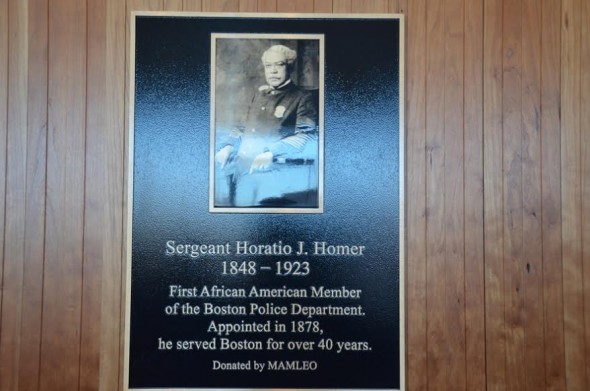
One year ago, during a journalism course at Boston University, I witnessed an ethical dispute over what it seemed to be an ordinary stock photo, representing a black girl biting a slice of watermelon and smiling. “Would you publish this photo?,” the professor asked us. The answer is simple for an Eastern European, but an American student would sit in doubt, because he knows the context.
The image is a centuries-old stereotype, according to which black people are extremely fond of watermelon, a fruit of the poor. Several years ago, launching a soft drink with a similar design on the box caused angry reactions. A simple Google search reveals dozens of cartoons and advertisements from the early twentieth century, with African Americans happily munching giant slices.
“Over time, the watermelon became a symbol of the broader denigration of black people. It became part of the image perpetuated by a white culture bent upon bolstering the myth of superiority by depicting the inferior race as lazy, simple-minded pickaninnies interested only in such mindless pleasures as a slice of sweet watermelon, ” wrote Keith Woods, in an article published by Poynter.org.
OK, but if African Americans really love watermelons, why would they feel offended? A study published in November 2001 by the Economic Research Service at the Department of Agriculture (USDA) shows a different situation: while they represented 13% of the population, black consumers accounted only for 11% of the watermelon consumption in the USA. The consumption was higher among Asians and Hispanics.
Woods provides an explanation for the low figures: the fear of becoming an incarnation of the stereotype. “Like all racial and ethnic stereotypes, this one’s destructive properties have, through the decades, stretched far beyond mere insult. It has helped poison self-esteem, pushing some people to avoid doing anything that seemed too “black,” lest they be lumped into the company of Uncle Remus, Aunt Jemima, or some other relative of racism”, he writes.
The website which published the photo of the girl eating watermelon removed it in the end. However, this case talks about the “refinements” of racism in the nowadays America. After Ferguson, one of the most discussed topics was the proportion of black police officers among the total forces. Washington Post analyzed the Census data and concluded that in more than 40 percent of the US cities, blacks are under-represented among police officers.
Even in Boston, where black residents represent just over a quarter of the city’s population and make up 23.2 percent of the police force, high disparities persist: the city named its first black superintendent in chief in 2013, almost a century and a half after the first black police officer, Sergeant Horatio J. Homer, joined the force.
During my stay in Boston, I interviewed an African American superintendent from Boston Police Department, Randall Halstead. When talking about his professional ascent, he repeatedly pointed a portrait of his predecessor: “It is all because of this man…” Halstead believed that it is important for people to see Horatio J. Homer, to remember him and to build from here.
NOTE: I published excerpts of this article in the Romanian magazine “Dilema Veche”.

Dear Vlad,
What a great topic you have chosen! Discussing stereotypes is extremely important, especially within context of race relations in our country. I commend you on your execution of this blog post – you did a fantastic job using external sources to supplement your purpose!
Regarding African Americans and watermelon – this is such an interesting stereotype, and has always caught my attention. It’s shameful that many people poke fun of others, using this stereotype. Your blog topic makes me remember a particularly awful case right at our school where a group of students hosted a party on Martin Luther King Day, a day celebrating race equality, and the students posted photos of themselves using stereotypes of African Americans. If I remember correctly, watermelon was a part of their joking. This racist party was taken offensively, and the students were punished.
-Emily Nichols
Vlad,
I am glad that I chose to read your article first. I had always been aware of the racial stereotype with African-Americans and watermelons. I was honestly unaware that it was considered to be a “fruit of the poor.” I can imagine that it must have been a peculiar cultural difference, given that you probably didn’t have any context on the idea before your professor asked you that.
Destructive properties are present in almost every racial and ethnical stereotype. Nobody likes to be labeled as a negative for something that can control, let alone for something that they cannot. The lack of empathy toward these racial stereotypes is incredibly concerning. I feel as though the understanding of how these can hurt someone’s feelings is rarely considered these days. I think it’s great that you brought this perspective into light for this blog.